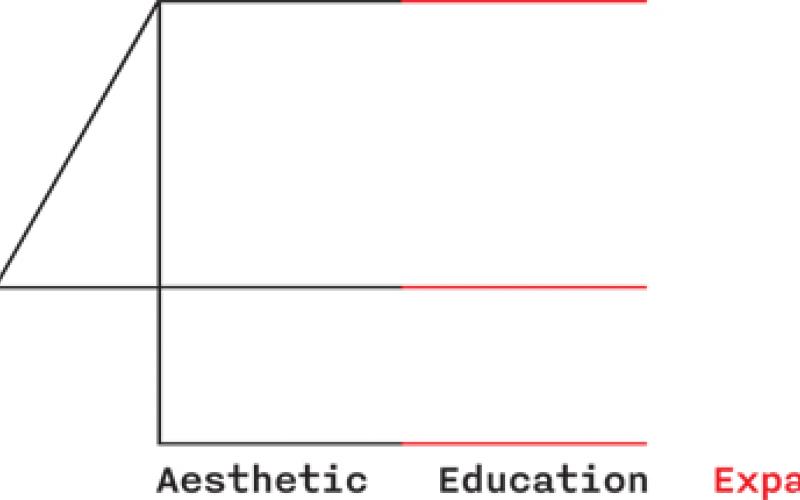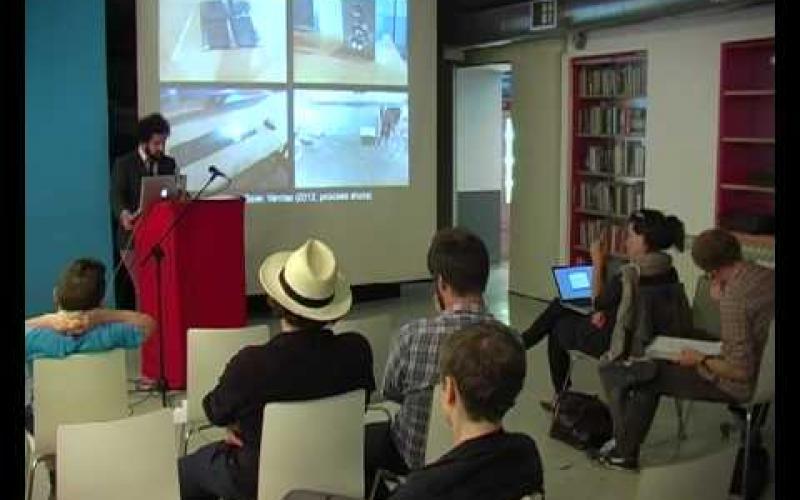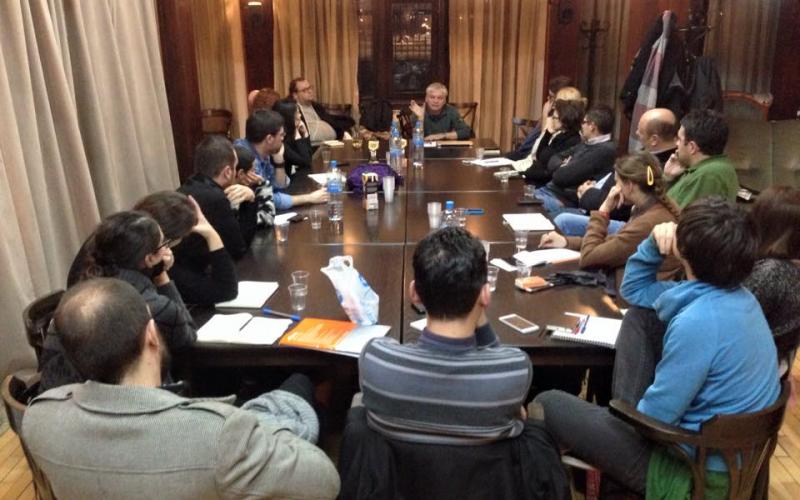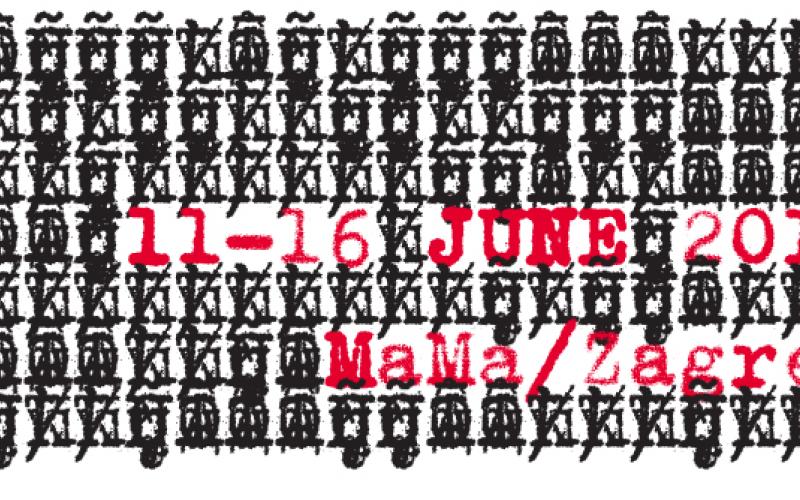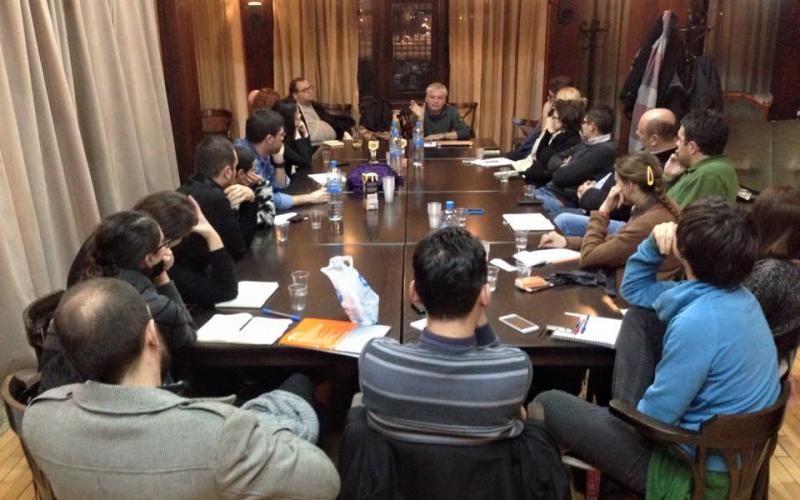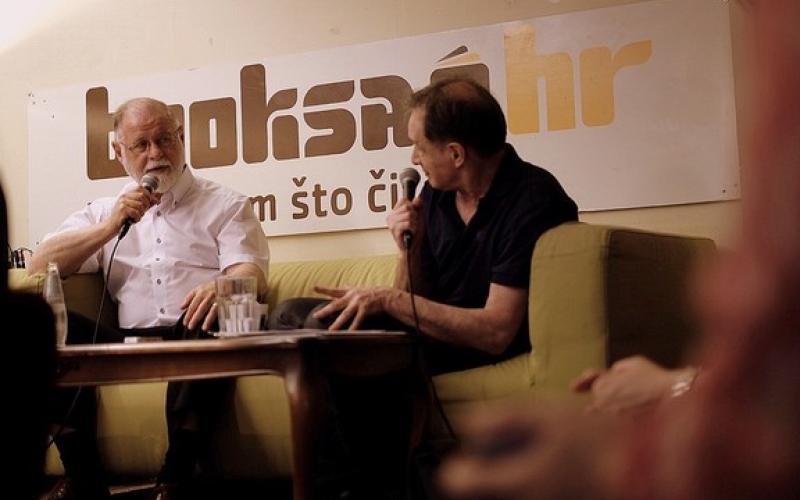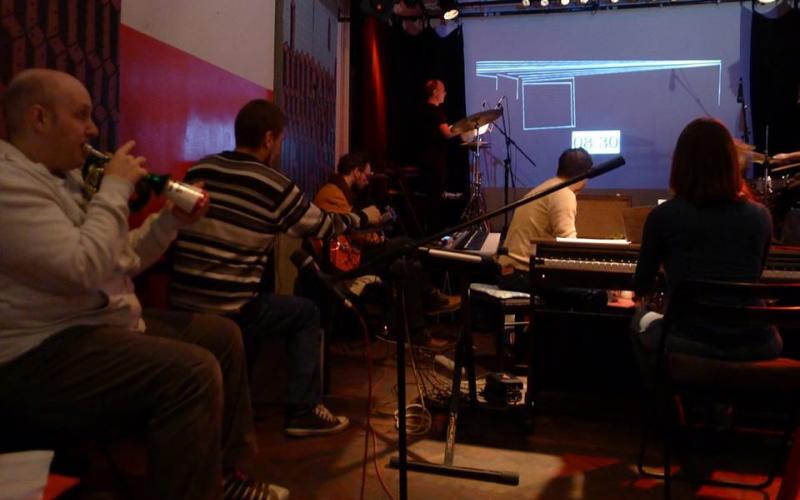Aesthetic Education Expanded (2015-2017)
Aesthetic Education Expanded is a continuation of the collaboration between four prominent organizations working in the field of contemporary art, theory and reflection, and social action: Multimedijalni Institut (HR), Berliner Gazette (DE), Kuda.org (RS) and Kontrapunkt (MK), that started from revisiting the Enlightenment idea of 'aesthetic education' - Friedrich Schiller’s notion that predicates the sphere of emancipated political action on the collective development of the capacity of imagination - in the age of networks, particularly in the wake of the fall of Berlin Wall and the breakdown of Yugoslavia. After researching that political-cultural nexus, now this collaborative platform expands to include another organization - Kulturtreger (HR) - specializing in issues of education and literary culture in order to delve deeper into the aesthetic educational nexus.
The project responds to a double predicament: contemporary art and culture find themselves increasingly under pressure to yield their position of autonomy to commercial and social uses. This predicament is generated by the problems of receding welfare state, culture increasingly having to compete over leisure time with demands of work and media, and growing disconnect between education and contemporary art and culture. To contextualize: First, facing the future prospect of diminishing public resources and uncertain audiences, the policy makers are demanding from cultural producers to orient themselves increasingly to commercial forms of popular entertainment. Second, the receding social welfare prevents a.o. participation and inclusion of broad segments of the population in arts and culture, so that arts and culture are increasingly called upon to substitute with their actions where institutions of work and welfare are failing to secure leisure time, economic stability and education necessary for equitable access to culture. Third, in many contexts, educational programs at all levels are failing to introduce and mediate to younger generations' developments in contemporary art and culture. In response to these developments, project Aesthetic Education Expanded intends to explore forms of initiation into the experience and practice of art and culture that respond to this contemporary condition. But in doing so, reinforce the autonomy of artistic production and open its emancipatory dimensions, avoiding the dichotomy of commercialism or social service, the simple binary of market or social mitigation. It’s a vision of aesthetic education that understands and develops public art and culture at a productive distance from and in dialog with the remaining spheres of the society.
Thematic focuses
The project aims to pursue this vision by producing public talks and conferences, education and workshops, artworks, cultural events and publications along four lines of exploration that form four thematic clusters:
- A Different Aesthetic Education: exploring new forms of education about, for and with contemporary art and culture;
- Politics of the Past, Politics of the Future: exploring history and future of emancipatory practices in contemporary art and culture;
- Poetics: reflecting on art’s autonomy, producing and presenting art works;
- Expanding Experiences: testing formats of audience development and participation, with the practical goal of expanding and raising new audiences.
The project tends to reinforce the autonomy of artistic production and open its emancipatory dimensions, avoiding the dichotomy of commercialism or social service. In conditions of exclusion and invisibility of cultural practices in the age of recession in the Balkans and EU, austerity and withdrawal of the state in pleading for the public good, new forms of (art) production, regional connectedness and audience development which the project seeks to invent represent material, institutional and technical basis for the strengthening of the independent art & cultural production and education; a field where the new forms of production and social relations (with institutions too) could be achieved.
The project is supported by:


